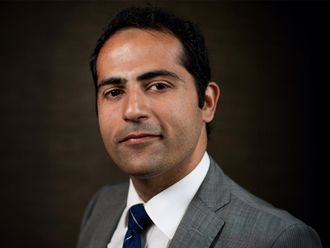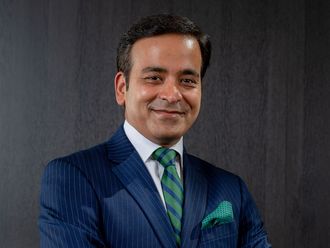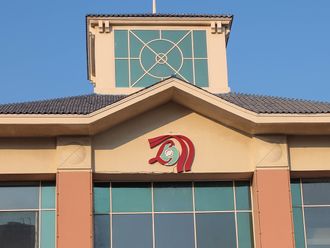Who you gonna call?" wasn't just a catchphrase in the 1984 film Ghostbusters. If the worst happens in Greece, Spain or Portugal, we're going to hear it all over again, and Europe's taxpayers will want to know the answer.
The European Union? The European Central Bank (ECB)? Or the International Monetary Fund (IMF)?
Senior officials, including ECB president Jean-Claude Trichet, have suggested it would be a humiliation for a euro-area country to call on the IMF for a rescue package to prevent a sovereign-debt default.
That's where they are wrong. This is no moment for pride. If emergency funding has to be organised, it should be the IMF that takes the lead. It has the expertise, it can absorb all the flak, and the "no bailout" rule would remain one of the fundamental principles of the region's common currency.
Greek Prime Minister George Papandreou said last week the Washington-based lender might have a role in resolving the crisis. "If markets don't respond as we would like them to, due to their speculative behaviour, then the final resort would be the International Monetary Fund," he said on March 3.
The next day, Trichet made a point of ruling that out. Calling on the IMF wouldn't be "appropriate", he said at a press conference in Frankfurt. Most European leaders would agree. German finance minister Wolfgang Schaeuble has even backed a European Monetary Fund as an alternative to the IMF.
There is no question it would be embarrassing if a euro member had to go cap in hand to the IMF. The reputation of the whole region would be tarnished and the euro's future would be in jeopardy. And yet there are good reasons for them to swallow their pride and let the IMF come in and do its work.
First, it has the expertise in dealing with countries that have lost the confidence of the global capital markets. It has the people and the experience to handle those situations.
Second, the medicine is going to be brutal. The IMF is better suited to being the "bad cop". It can take all the criticism and divert public anger away from the EU and the euro.
No-bailout rule
Third, calling in the IMF will preserve the no-bailout rule. When the euro was established, it was decided that member states shouldn't have to bail each other out in the event of a fiscal crisis. That was important. Taxpayers in Germany don't want to feel they are being made to pay for less-responsible governments in Greece or Portugal. If they are forced to, they might decide it's not a club they want to be in any more. Seeking help from the IMF gets around that situation.
Of course, the crisis could also be resolved within the euro area. The IMF solution still makes more sense. That should be sorted out now, so that next time the bond markets attack a euro-member state, we all know who they're going to call.












